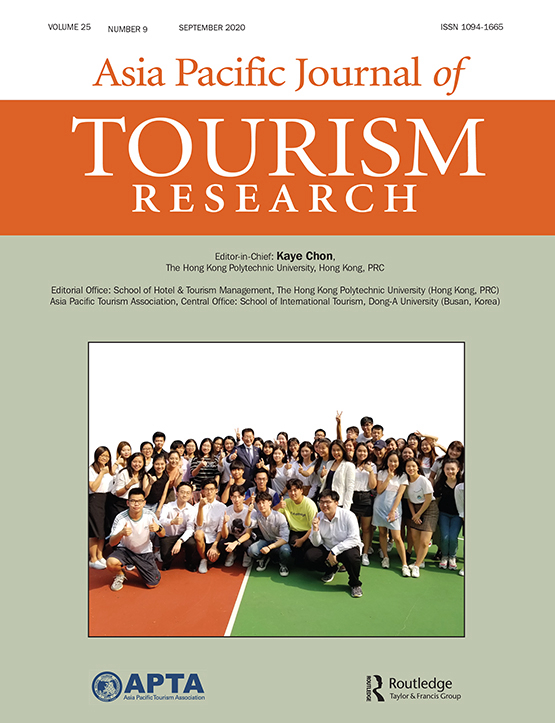Demystifying the nexus between social media usage and overtourism: evidence from Hangzhou, China
IF 3.3
3区 管理学
Q1 HOSPITALITY, LEISURE, SPORT & TOURISM
引用次数: 0
Abstract
ABSTRACT Several destinations across the globe experience the challenge of overtourism. Literature identifies social media as one of the driving factors of overtourism. Although some prior studies have explored the relationship between social media and overtourism, the connection between the two still lacks a strong empirical validation. In light of this, we empirically established the relationship between social media usage (SMU) and overtourism, drawing upon Uses and Gratifications Theory (UGT). Quantitative data were collected from 209 tourists who had visited Hangzhou and analysed using PLS-SEM. Research findings reveal that social media usage contributes to overtourism through the mediating effect of tourist flow concentration, even though the influence is weak. Consequently, only 10.2% of the variance in overtourism is explained by the model, suggesting a weak effect of social media usage on overtourism. Implications and limitations are discussed, and avenues for further research are suggested.揭秘社交媒体使用与过度旅游之间的关系:来自中国杭州的证据
全球多个旅游目的地都面临着过度旅游的挑战。文献认为社交媒体是过度旅游的驱动因素之一。虽然之前的一些研究已经探讨了社交媒体与过度旅游之间的关系,但两者之间的联系仍然缺乏强有力的实证验证。鉴于此,我们借鉴使用与满足理论(UGT),实证地建立了社交媒体使用(SMU)与过度旅游之间的关系。利用PLS-SEM对209名来杭州旅游的游客进行定量分析。研究发现,社交媒体使用通过客流集中度的中介作用促进了过度旅游,但影响程度较弱。因此,只有10.2%的过度旅游方差可以被模型解释,这表明社交媒体使用对过度旅游的影响很弱。讨论了影响和局限性,并提出了进一步研究的途径。
本文章由计算机程序翻译,如有差异,请以英文原文为准。
求助全文
约1分钟内获得全文
求助全文
来源期刊

Asia Pacific Journal of Tourism Research
HOSPITALITY, LEISURE, SPORT & TOURISM-
CiteScore
6.80
自引率
4.00%
发文量
31
期刊介绍:
Asia Pacific Journal of Tourism Research is the official journal of the Asia Pacific Tourism Association (Founded September 1995) and seeks to publish both empirically and theoretically based articles which advance and foster knowledge of tourism as it relates to the Asia Pacific region. The Journal welcomes submissions of full length articles and critical reviews on major issues with relevance to tourism in the Asia Pacific region.
 求助内容:
求助内容: 应助结果提醒方式:
应助结果提醒方式:


